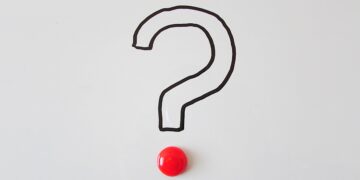In What’s KILLING Your Profitability? (It ALL Boils Down to Leadership!), I titled a chapter “The Cost of an Unaccountable Workforce.” Make no mistake though, the cost of unaccountability reaches much farther than the profit and loss sheet in a business! The book was geared specifically at the tangible impact great leadership can have on the profitability of any business, and this chapter built on what I shared just prior to it in a chapter detailing how much profit is lost when leaders fail to set clear expectations. As I opened the chapter, I alluded to what I’ve seen as a significant decline in personal accountability in recent years across society. Since the book was geared at business leadership, I intentionally stayed away from blatant political and social topics. My goal is to do the same here, but I’m guessing all that follows could be viewed as partisan. Truth be told, I won’t be apologizing if it offends the D’s or the R’s, as I’m rather disgusted with them both. This ain’t about them though… This is all about the negative impact we have on the people we care about when we create a culture of unaccountability, in our families and within our circle of friends.
In the book, I reference an article called “Holding People Accountable: What Most Leaders Fail” where Shannon Howard shares that “18% of the CEOs we surveyed cited holding people accountable as their biggest weakness.” Howard went on the say that “when accountability is lacking, performance, company culture, and morale suffer.” As someone who’s always tried to produce the best results I can in any position I’ve held, I can share that seeing coworkers not be held accountable for poor performance definitely ate away at team morale. That said, I don’t believe this is exclusive to the workplace.
If Cindy and I allowed our daughter (Renee) to do as she pleased, whether her actions were in line with our values or not, that would have sent our son (Matt) a message that those values weren’t really that important after all. Since Matt liked to push the envelope wherever he could anyway, any failure to hold Renee accountable would have likely set a new (low) bar for what Matt saw as acceptable. By continuing that downward spiral with Matt, who knows where we could have ended up! Thankfully, both have grown into amazing people today. I’d like to think that me bordering on being a drill sergeant had at least a slight positive impact on that, but you can ask them about that if you like.
With that in mind, I want you to consider folks you have known who had little or no accountability for their actions growing up. I can think of a few who now contribute to society, but I can point to far more who don’t. Now think about scenarios where individuals intentionally break the law with little or no consequence. Where does that lead? All too often, a lack of accountability reinforces bad behavior, leading to more – and often more serious – bad behavior.
This column was never intended to solve all the world’s problems, so let’s stick with how this all ties back to our personal relationships. If 18% of the CEOs in the survey I referenced above openly admit to struggling to hold their people accountable, isn’t it realistic to think that you and I struggle at least as much? When we do, what message are we sending to the people we care most about? Will this help them reach their potential? And how much more would we help them by maintaining accountability in our relationship with them? Last question: how much respect have you ever had for someone who wasn’t willing to hold you accountable?
Don’t miss my point here, this isn’t about barking orders or being in a position of authority. It’s about being the best we can be for the people we care about and helping them do the same.

































